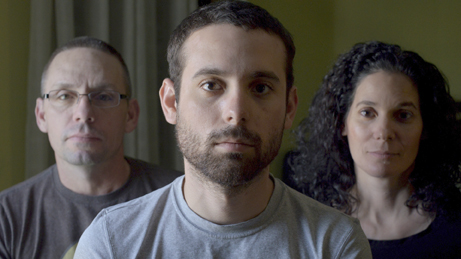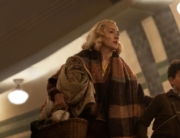![]() As a result of the violence they witness, soldiers often walk a fine line between morality and sanity, a demarcation that’s been well fictionalized in Joseph Conrad’s Heart of Darkness and Francis Ford Coppola’s Apocalypse Now. In The Kill Team, Oscar-nominated documentarian Dan Krauss (The Life of Kevin Carter) takes a hard and sobering look at a 2010 incident involving U.S. soldiers who killed Afghani civilians.
As a result of the violence they witness, soldiers often walk a fine line between morality and sanity, a demarcation that’s been well fictionalized in Joseph Conrad’s Heart of Darkness and Francis Ford Coppola’s Apocalypse Now. In The Kill Team, Oscar-nominated documentarian Dan Krauss (The Life of Kevin Carter) takes a hard and sobering look at a 2010 incident involving U.S. soldiers who killed Afghani civilians.
Bored, frustrated, and primed to fight, a platoon murdered innocent non-combatants and planted weapons on them to make their kills appear “legitimate,” and they took posed photos and video of the victims. One soldier, 21-year-old specialist Adam Winfield, was disturbed by these actions and contacted his father for guidance. The family put in calls to the Army, but no action was taken. In Afghanistan, the platoon grew suspicious of Adam’s loyalty and, according to some, its leader threatened his life. Eventually, Adam’s fellow soldiers tested him by pressuring him to commit another crime. He complied and sunk further down the rabbit hole.
The Kill Team is a heartbreaking tale of a soldier who joined the military with the best of intentions and was warped by the horrors of war— from the enemy and within his own group. He wanted to do the right thing, but the military requires the highest level of obedience and loyalty, and speaking out is often seen as the worst crime of all. It’s debatable whether Adam Winfield should’ve been excused for his involvement in the crimes covered in the film, but there is no question that the Army should’ve investigated immediately his claims after his family filed reports.
Krauss maintains an objective point of view regarding Winfield’s legal matters, and he was able to dig deeply. In large part, that’s due to the gain of trust of Adam’s parents and lawyer. We never hear directly from the platoon’s leader, but do hear gruesome testimony and that he openly bragged about civilian killings. Stills and video of the soldiers gloating over corpses are particularly shocking. The most disturbing thought, though, is made by Adam’s father, who points out that the issue is much bigger than this one case. One of the platoon members echoes the thought, stating that cover-ups and trophy killing are quite prevalent. It is simply a messy by-product of war or something that can be addressed?







Leave A Comment